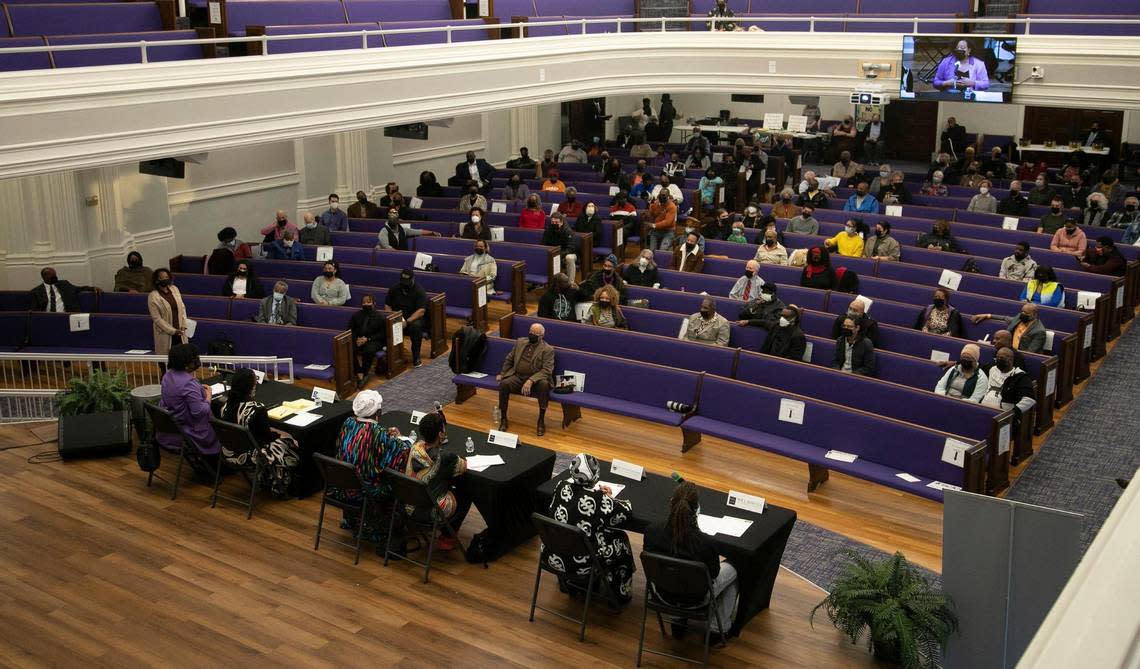‘Right these wrongs’: On MLK Day, panelists say reparations are needed in Kansas City
Looking out at more than 100 faces Monday evening, Justice Gatson asked the crowd gathered inside the Metropolitan Missionary Baptist Church in Kansas City what they wanted.
“Reparations,” a unison of voices responded.
“When do we want it?” Gatson asked from a stage, in a chant reminiscent to one that became well-known across the country during Black Lives Matter protests. The group answered swiftly: “Now!”
The moment came during a six-person community forum, which included leaders of the group KC Reparations Coalition, as part of the Southern Christian Leadership Conference of Greater Kansas City’s Martin Luther King Jr. Day celebration. Days earlier, the City Council voted 10-1 to establish a committee to study reparations for Black residents — legislation that some of the panelists helped write.
That ordinance, sponsored by Councilwoman Melissa Robinson, District 3, gives the city 90 days to form the “Mayor’s Commission on Reparations,” which will go on to advise the city about possible reparations. Once established, the 13-person group will develop proposals focused on five areas: housing, economic development, health, education and criminal justice. The commission will submit a preliminary report of its findings no more than a year after its first meeting, with a final report due six months after that.
The legislation does not guarantee reparations for Kansas City’s “past actions to support and defend the institution of slavery and segregation era human rights violations,” as the ordinance put it. But Robinson, who was among the six panelists on stage, said they are needed.
“Equity is not enough,” she said.

Asked by an Independence resident if the ordinance only applied to Kansas City, Robinson said that it does, but noted the legislation encourages other organizations and institutions to join the city’s effort.
In 2021, Evanston, Illinois, became the first city to make reparations available to Black residents harmed by the city’s policies or practices. Other cities, such as Boston, have created task forces to study how to provide reparations.
On Monday, Gatson spoke of how racist policies denied Black Kansas Citians from buying homes and creating wealth; how Black mothers are four times more likely than white ones to die in childbirth; and how Black residents are harmed by the legal system.
“We have historical facts,” she said. “We can point to the systems; we can tell you who hurt us.”
Will Bowles, co-chair of KC Reparations Coalition, said by assets alone, the net worth of a Black family is eight times less than a white one. It would take more than 200 years, Bowles said, for them to reach “equal grounds” with current trends.
“This is what reparations measures are meant to expedite and remediate,” Bowles said, later adding: “We must see to it to right these wrongs.”
